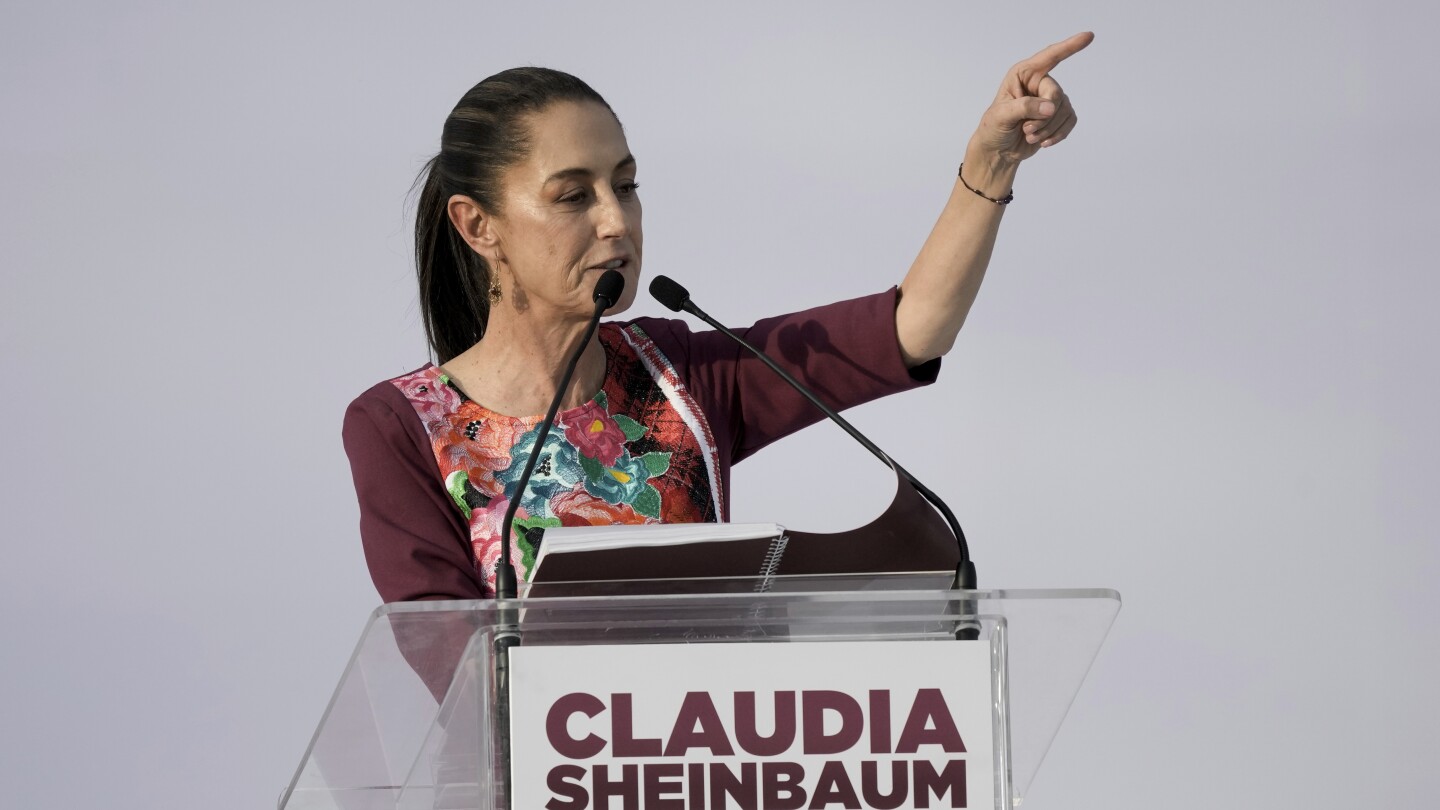MEXICO CITY (AP) — Mexico’s presidential candidates on Monday signed a commitment for peace with Catholic Church leaders that proposes strategies to reduce the violence in the country.
During the meeting led by the Episcopal Conference of Mexico, presidential front-runner and ruling party candidate Claudia Sheinbaum said she would be open to dialogue but didn’t to accept several criticisms of President Andrés Manuel López Obrador’s security strategy made by the religious leaders.
“I do not share the pessimistic evaluation of the current moment,” said Sheinbaum, who contended that not all Mexicans feel fear, distrust or uncertainty, as the church said in a document previously shared with all three candidates.
Sheinbaum said homicides dropped during the presidency of López Obrador. But organized crime has long controlled swaths of Mexico through violence and corruption. It has diversified beyond drug trafficking in recent years, extorting businesses big and small for protection payments.
According to the church leaders, Mexico suffers from a “deep crisis of violence and social decomposition.”
The church’s first criticism of the government’s security strategy arose in 2022, when the murder of two Jesuits priests in the north of the country shook the public opinion and the ecclesiastical hierarchy.
These concerns were discussed in 2023 during a “National Peace Dialogue” that brought together civil society, academics, violence victims and businesspeople who searched for solutions to achieve justice, security and peace.
Monday’s document is titled “National Commitment to Peace” and brings together policies aimed at fighting Mexico’s chronic violence.
The relationship between López Obrador and the Catholic Church has been tense ever since the murder of the Jesuits priests. Bishop Ramón Castro, secretary general of the Episcopal Conference, said last week that he wished for a deeper dialogue between the president and the church.
During her speech on Monday, opposition candidate Xóchitl Gálvez criticized the increased military presence in Mexico and recalled that eight priests have been murdered during Lopez Obrador’s presidency.
“I will make all these proposals my own,” said Gálvez of the commitment to peace. “I am convinced that the churches, and particularly the Catholic Church, to which I belong, play a fundamental role in building peace.”
Among her proposals to confront Mexico’s violence, Galvez said she would improve the working conditions of police, prosecutors and judges.
“A problem of this magnitude requires everyone’s participation,” Gálvez said.
Jorge Álvarez Máynez, a little-known congressman running the presidency for Mexico’s small Citizen’s Movement, also expressed support for the church leaders and addressed López Obrador’s strategy of “ hugs, not bullets.”
“They told us that we didn’t have to worry because they (the criminals) were only going to kill each other,” Álvarez Máynez said. “But they were wrong.”
Last February, bishops of Guerrero, one of the most violent states in Mexico, negotiated with criminal groups in an attempt to stop the wave of violence that afflicts its population.
_____
Associated Press religion coverage receives support through the AP’s collaboration with The Conversation US, with funding from Lilly Endowment Inc. The AP is solely responsible for this content.

